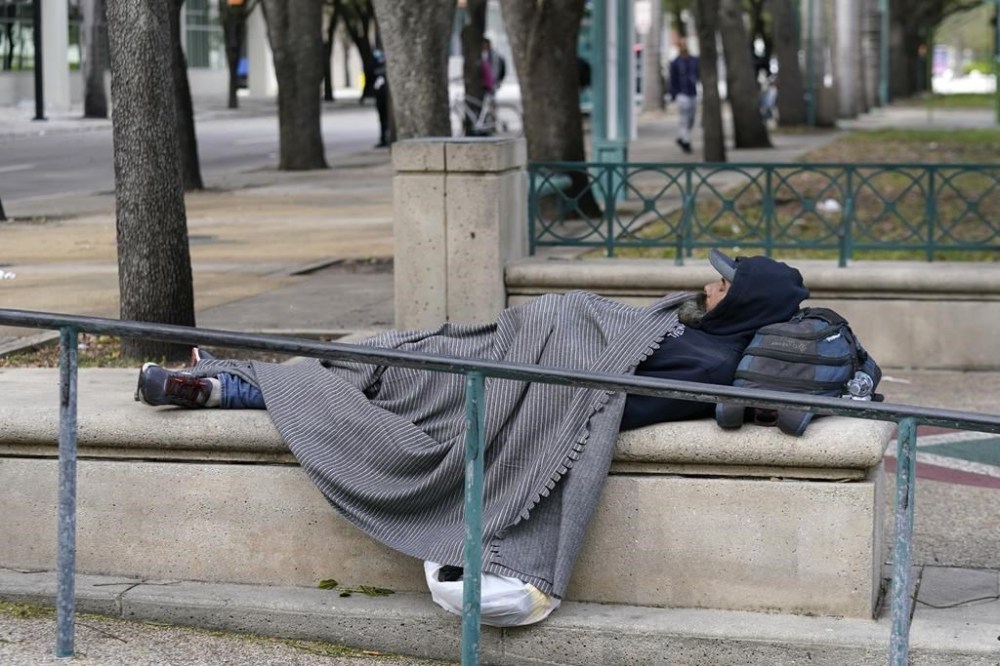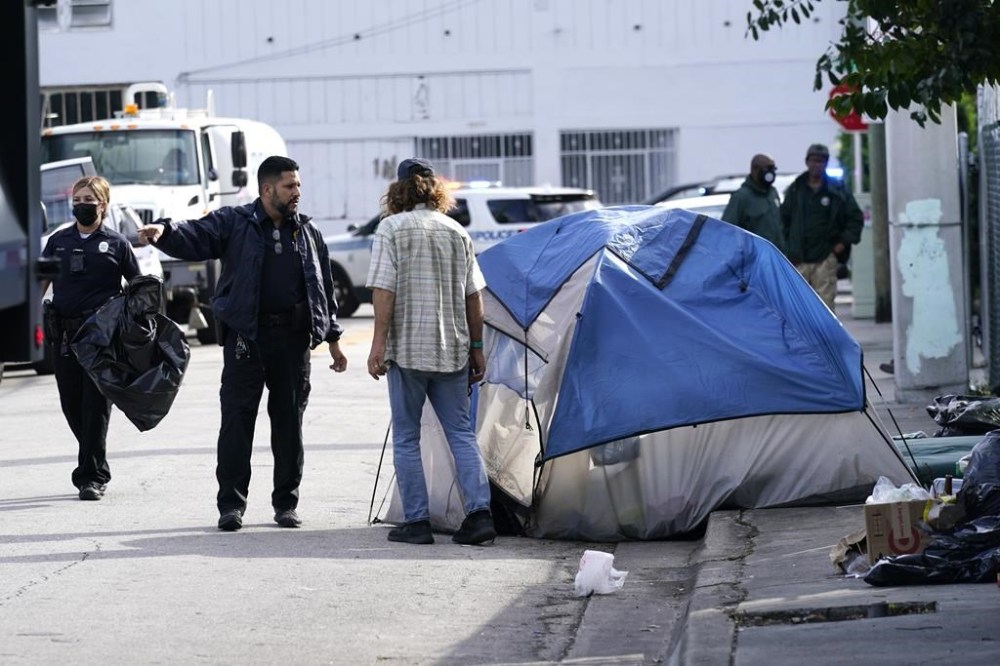Florida homeless to be banned from sleeping in public spaces under DeSantis-backed law
Advertisement
Read this article for free:
or
Already have an account? Log in here »
To continue reading, please subscribe:
Monthly Digital Subscription
$0 for the first 4 weeks*
- Enjoy unlimited reading on winnipegfreepress.com
- Read the E-Edition, our digital replica newspaper
- Access News Break, our award-winning app
- Play interactive puzzles
*No charge for 4 weeks then price increases to the regular rate of $19.00 plus GST every four weeks. Offer available to new and qualified returning subscribers only. Cancel any time.
Monthly Digital Subscription
$4.75/week*
- Enjoy unlimited reading on winnipegfreepress.com
- Read the E-Edition, our digital replica newspaper
- Access News Break, our award-winning app
- Play interactive puzzles
*Billed as $19 plus GST every four weeks. Cancel any time.
To continue reading, please subscribe:
Add Free Press access to your Brandon Sun subscription for only an additional
$1 for the first 4 weeks*
*Your next subscription payment will increase by $1.00 and you will be charged $16.99 plus GST for four weeks. After four weeks, your payment will increase to $23.99 plus GST every four weeks.
Read unlimited articles for free today:
or
Already have an account? Log in here »
Hey there, time traveller!
This article was published 20/03/2024 (632 days ago), so information in it may no longer be current.
Florida’s homeless will be banned from sleeping on sidewalks and in parks and other public spaces under a law signed Wednesday by Republican Gov. Ron DeSantis. It also promises the homeless greater access to services for issues such as substance abuse and mental health problems.
The state Department of Children and Families would oversee local governments that set up designated areas for the homeless to camp for up to a year under the new law, which takes effect Oct. 1. Anyone using those encampments would be prohibited from using alcohol or illegal drugs, with sanitation and security to be provided.
The encampments would be created if local homeless shelters reach maximum capacity, according a news release from the governor’s office. The law requires regional entities to provide necessary behavioral treatment access as a condition of a county or city creating an encampment.

Allowing the homeless to camp in public spaces affects the local quality of life, can be a nuisance for businesses and makes it more difficult to deliver them needed services because they’re scattered, DeSantis and other supporters of the measure said at a news conference in Miami Beach.
“I think this is absolutely the right balance to strike,” DeSantis said. “We want to make sure we put public safety above all else.”
During the Legislature’s latest session, Florida’s homeless population was estimated to be about 30,700 in 2023. That’s a fraction of the homeless populations in many large U.S. cities, but the law’s sponsors said it could worsen because of Florida’s rapid population growth.
“This bill will not eliminate homelessness. But it is a start,” said Republican state Rep. Sam Garrison. “And it states clearly that in Florida, our public spaces are worth fighting for.”
Opponents of the law say it is meant to round up the homeless and hide them from public view.
“This bill does not and it will not address the more pressing and root cause of homelessness,” said Democratic state Sen. Shevrin Jones during a debate this year. “We are literally reshuffling the visibility of unhoused individuals with no exit strategy for people who are experiencing homelessness.”

DeSantis, however, said the new law is a unique approach in pledging to provide the services that homeless people often need.
“This is going to require that the services are there to help people get back on their feet,” the governor said. “I think it’s important that we maintain the quality of life for the citizens of Florida.”
Beginning in January 2025, the law will allow residents, local business owners and the state attorney general to file a lawsuit to stop any city or county from allowing the homeless to camp or sleep on public property.

